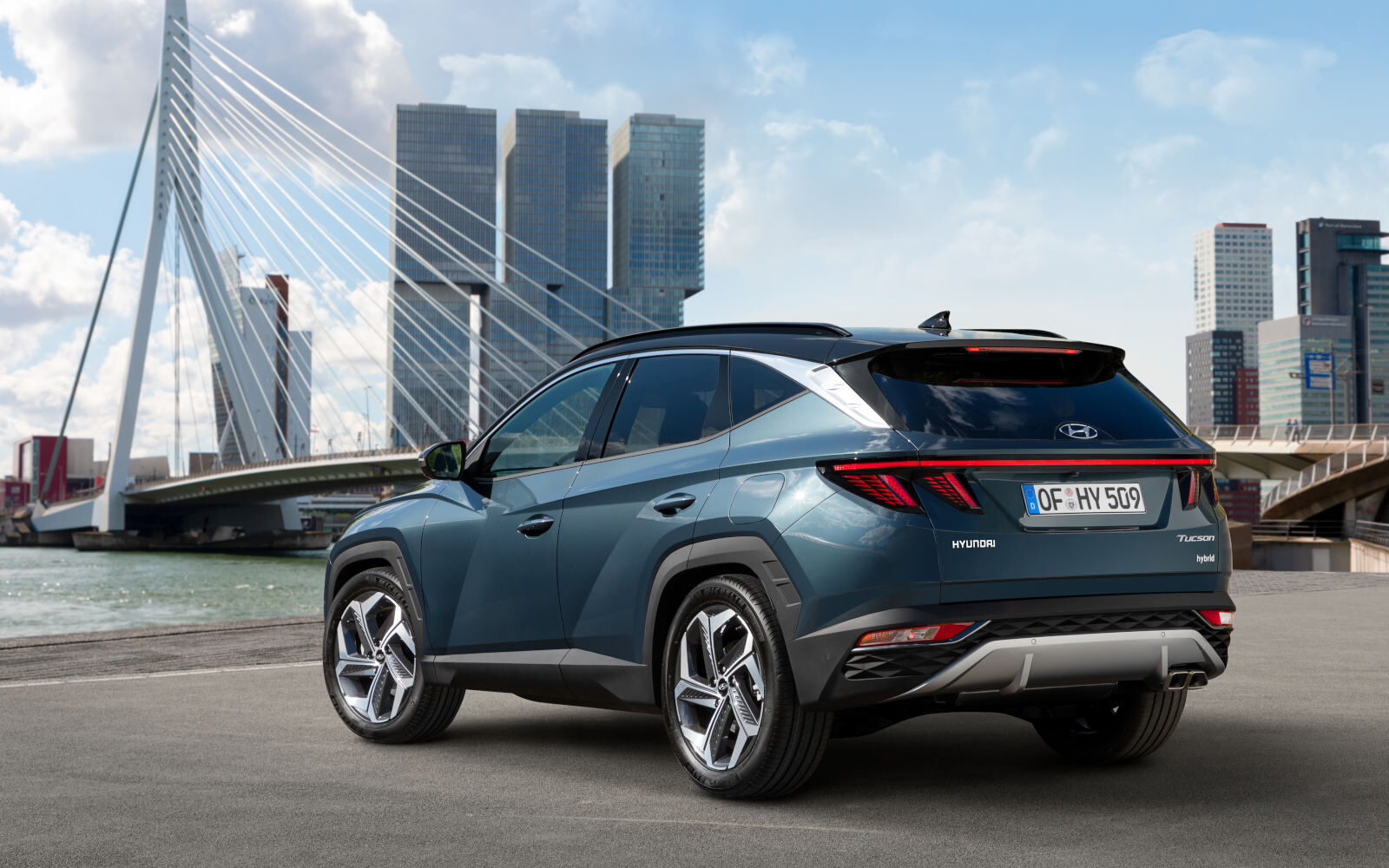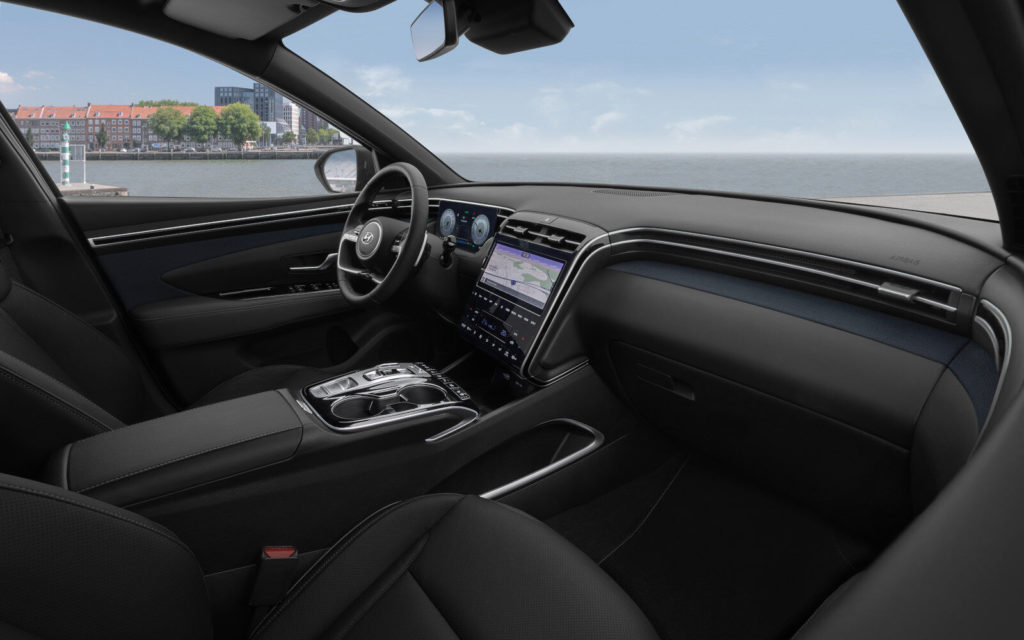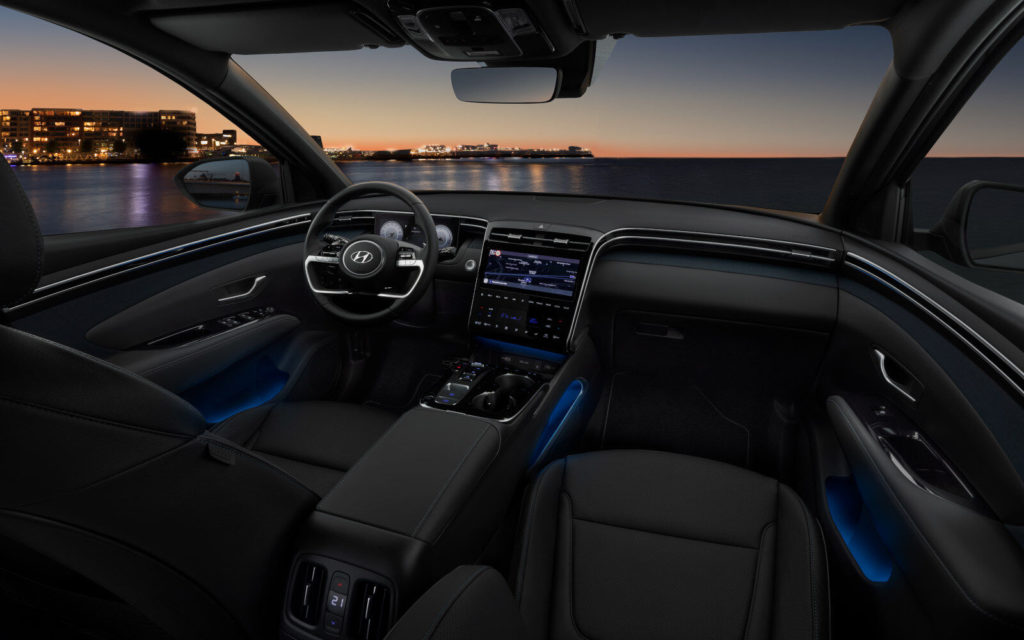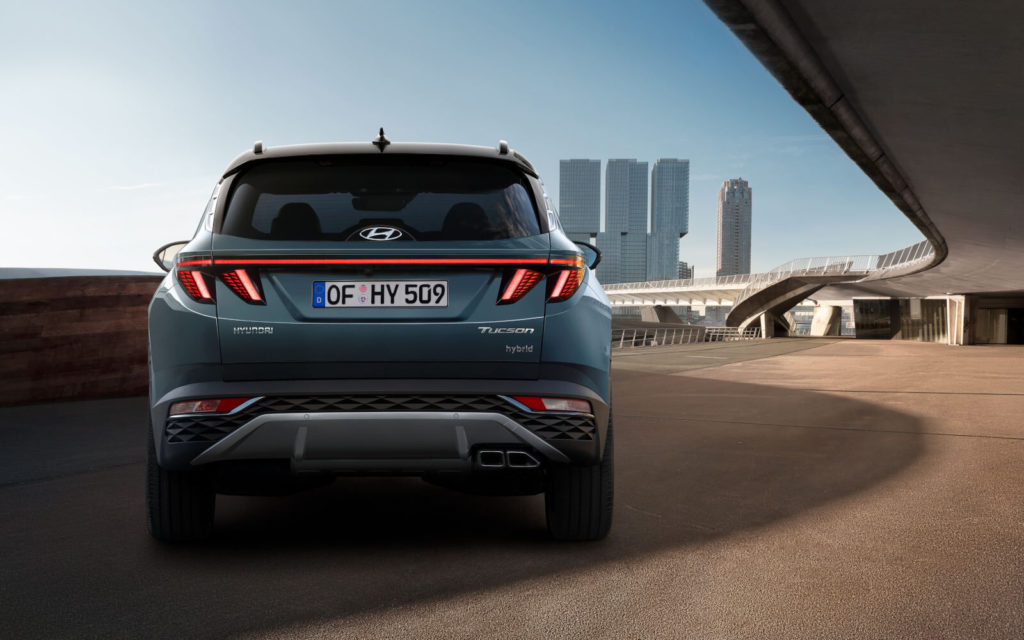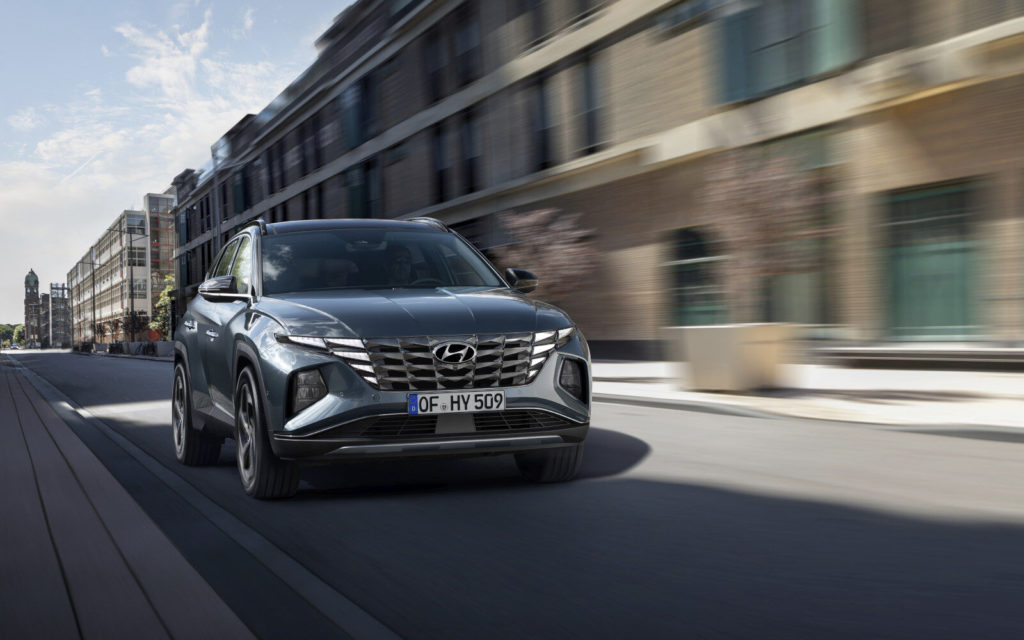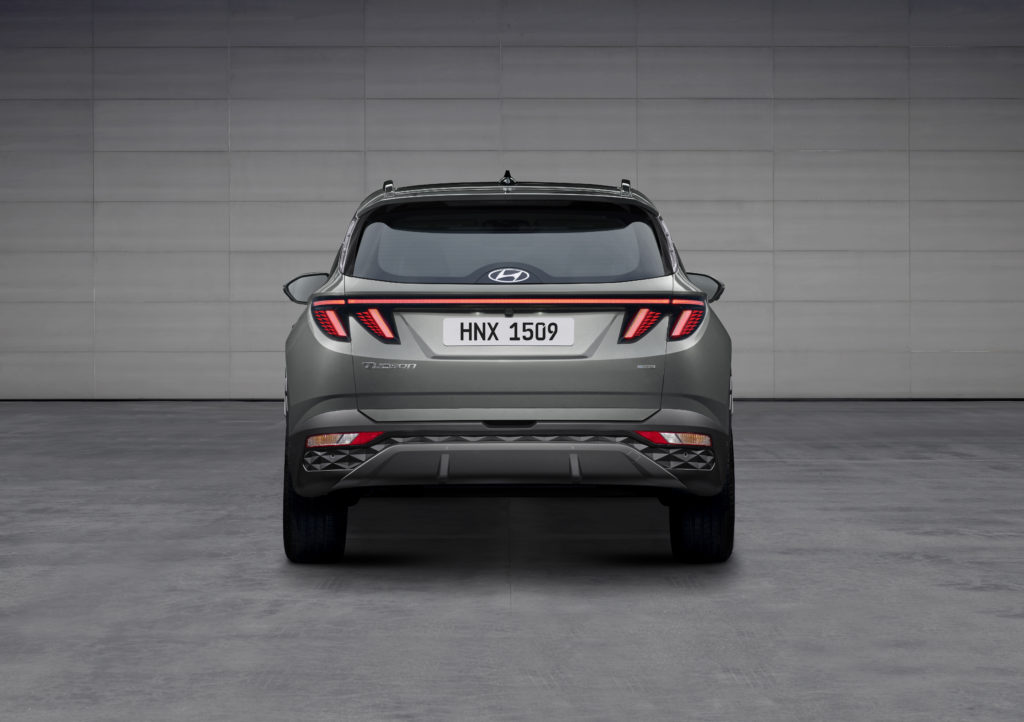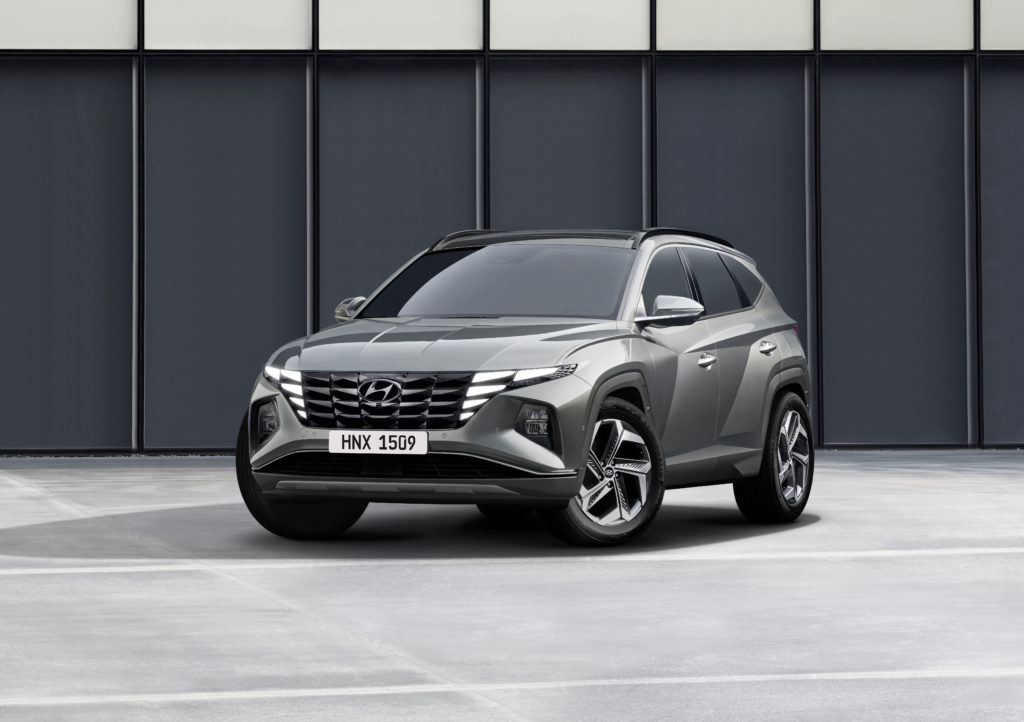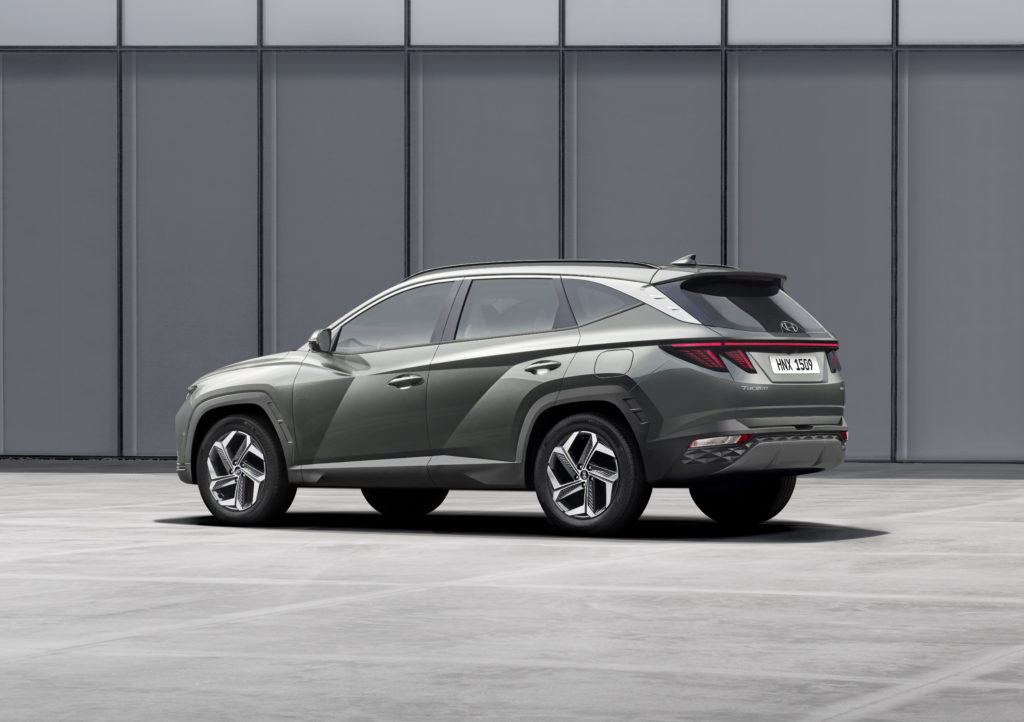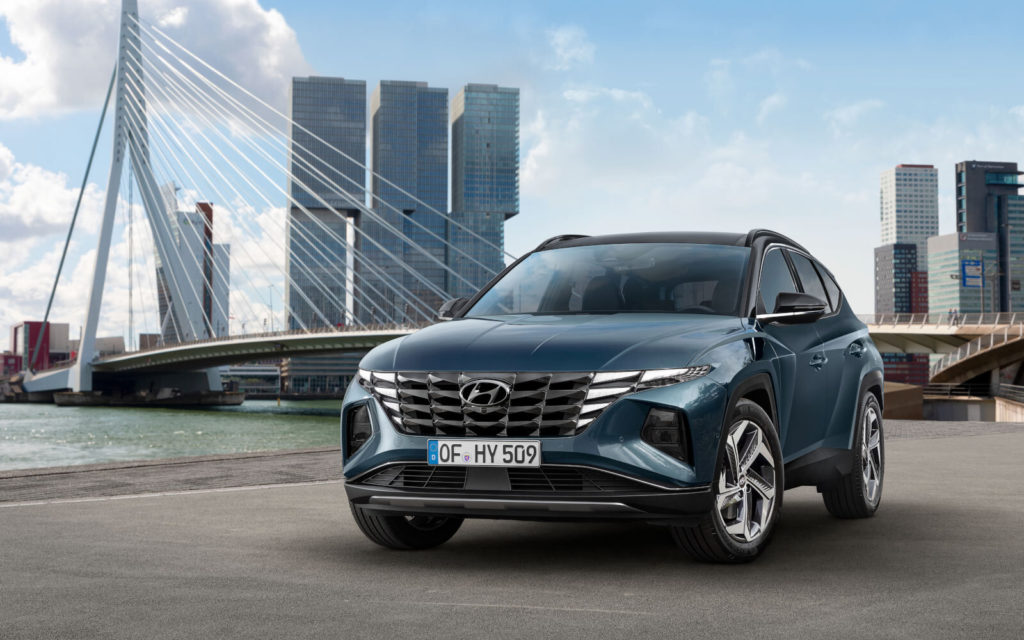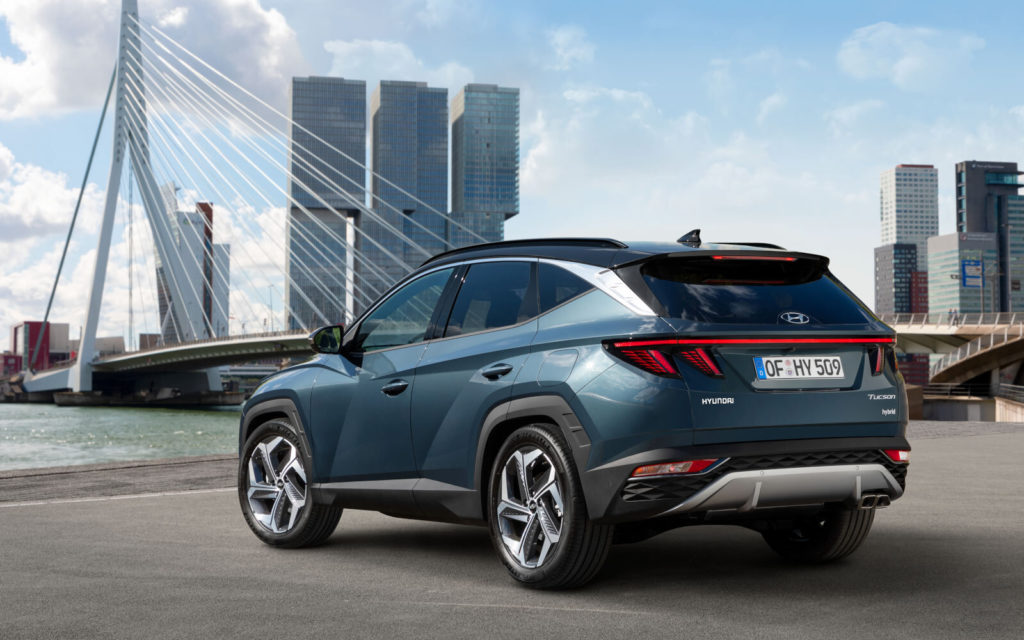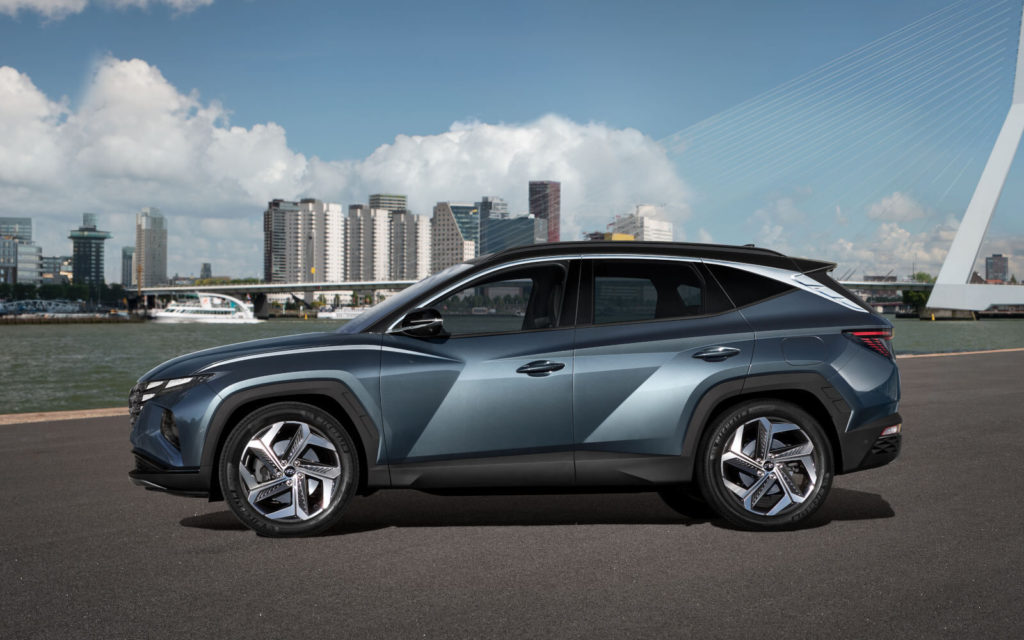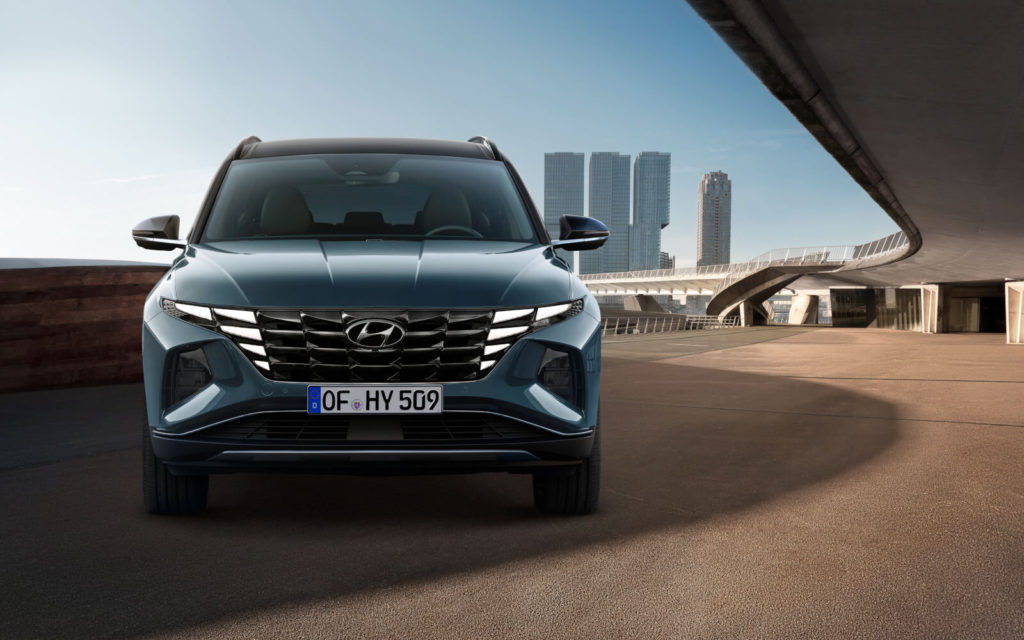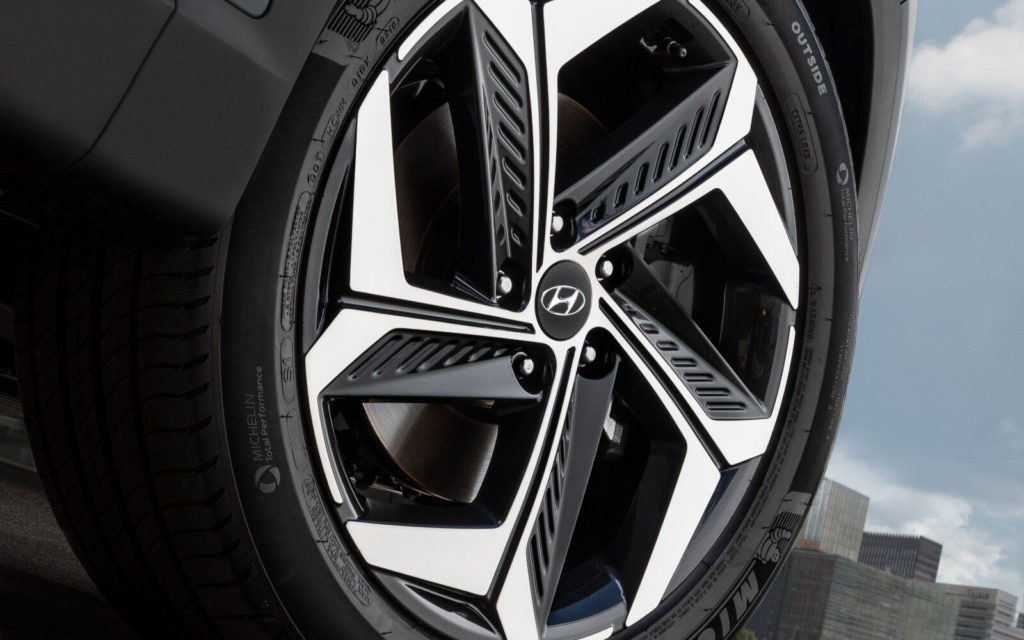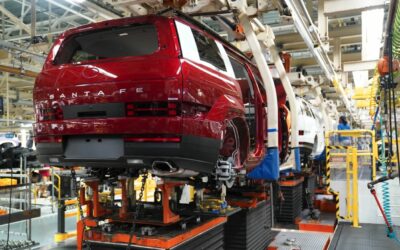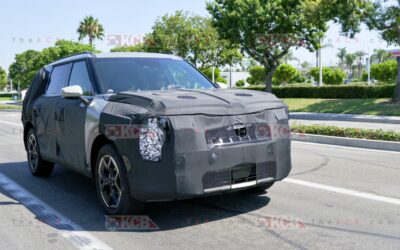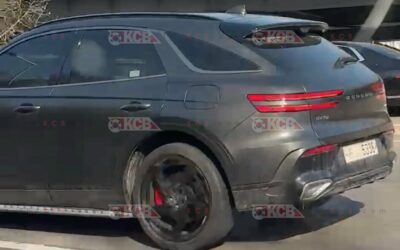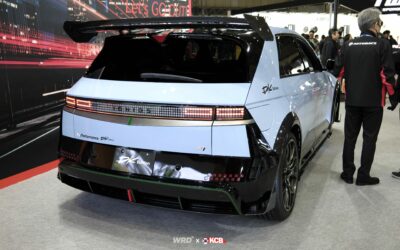Today Hyundai released official new photos and videos of the upcoming, fully redesigned Tucson crossover.
[ads id=”9″]
The new Tucson is a big step up for the compact crossover, with styling, technology, and performance enhancements that seem likely to set a higher bar for the segment, and continue a refreshing restyling of the Hyundai brand both inside and out.
Sensuous Sportiness
One of the biggest departures from the current Tucson is the bold exterior design, which follows a design language Hyundai calls “Sensuous Sportiness.”
The daytime running lights are fully integrated into the largefront grille, and when the car is off, they are unnoticeable among the dark chrome features. However, when you start driving, the edges of the geometric designed grille light up in 5 distinct, jewel-like triangles of light on each side. Note that the actual LED headlights and turn signals are housed in separate units lower down the front bumper in a darkened housing that blends in seamlessly with a pair of small air ducts that supply cooling to the brakes and improved aerodynamics.
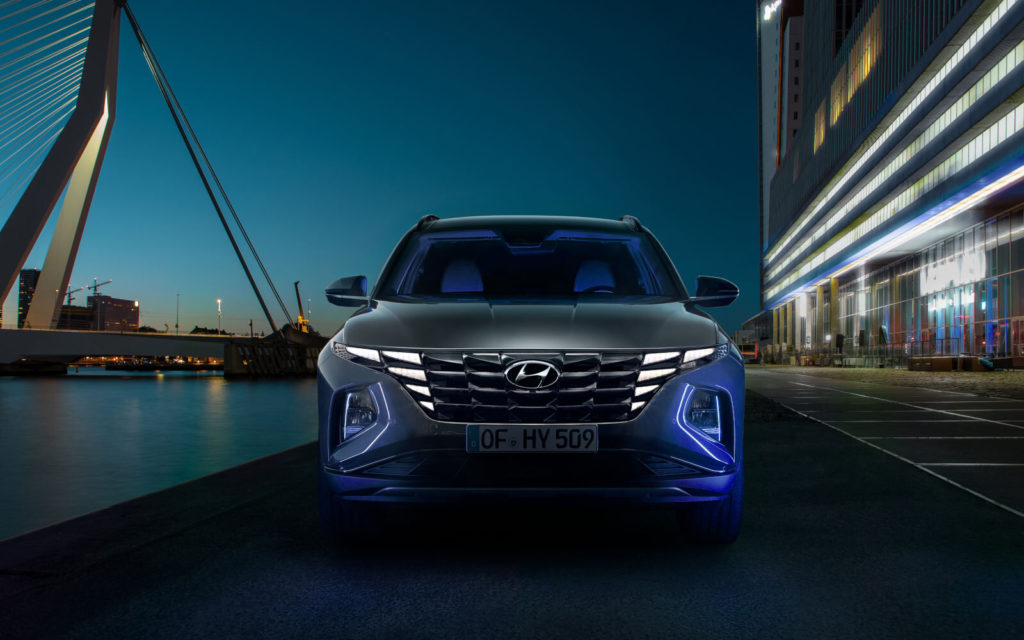
The side view of the next generation Hyundai Tucson has heavily angular and deep creases throughout the bodywork in a more finished application than the similarly styled Elantrasedan. A strong character line runs from just above the rear lights into the front fender styling, including both concave and convex details. This is matched by the angular wheel arches and sharply sculpted lower body cladding. A satin chrome window trim line at the top of the side windows extends to the back of the car and integrates with the rear spoiler and back window thanks to chiseled details on the rear piece of the trim. Hyundai’s hero color for this car is a deep metallic grayish blue with a gloss black roof, which also sports gloss black side view mirror covers. Other paint colors allow buyers the choice of a black, dark gray, or body colored roof.
The new Hyundai Tucson comes with three wheel designs: 17”, 18”, and 19” alloys which have a sporty two-tone style and are paired with Continental and Michelin tire options.
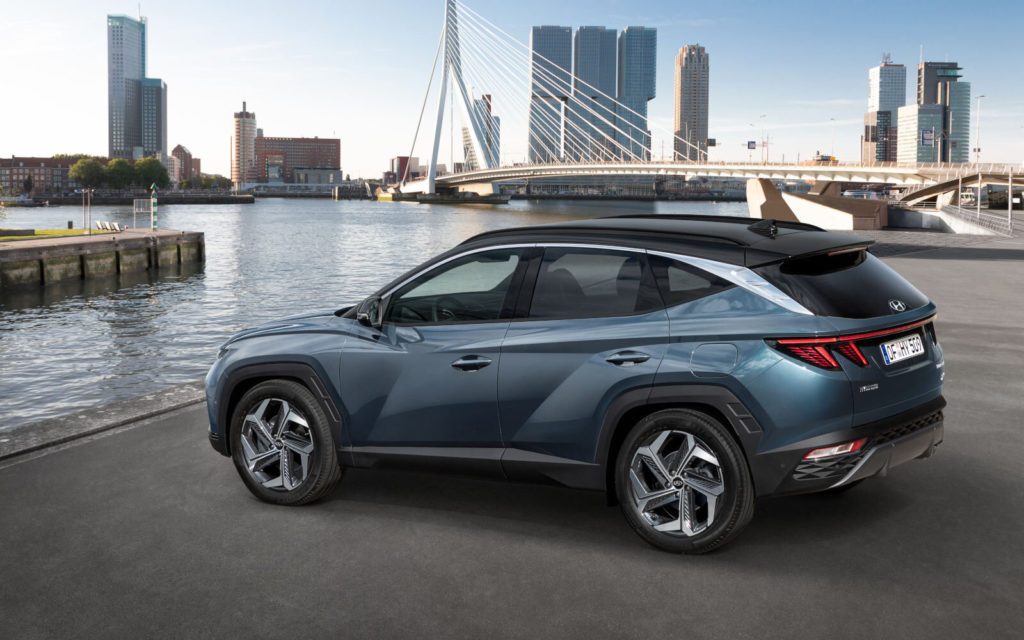
[ads id=”8″]
The rear of the Tucson also features a strong, rugged appearance, with a lightbar extending the full width of the back of the car, with jagged tooth-like spikes angling downward on both sides. The brake lights are accented by smaller triangles that light up to imitate the front grille design. Reversing lights, turn signals, and rear reflectors are integrated into the lower rear diffuser in a compact unit. That rear diffuser also sports a triangular design similar to the grille. A two dimensionalHyundai logo sits at the bottom of the rear window, while a rear wiper is hidden at the top of the rear window.
Minimalist Interior Design
In stark contrast to the complex shapes of the exterior, the new Tucson’s interior is very simple and clean. Two silver trim lines extend from the sides of the center stack across both sides of the dashboard and onto the upper interior door trim. These trim lines integrate the infotainment and climate controls, air vents, as well as memory seats for well equipped models into a single sweeping design element. The available 10.25” touch screen sits atop an array of inductive redundant controls that control the sound system, in-car navigation, Bluetooth phone with Android Auto and Apple Carplay, tri-zone automatic climate control, and a suite of other technology.
From the driver’s perspective, the new Tucson features a fully digital instrument cluster with a minimalist design that does away with the standard binnacle that most gauge clusters sit in. The leather wrapped steering wheel also has a minimalist design but contains all the usual controls you are used to, with an elegant satin chrome line outlining the lower part of the wheel.To drive the car, you can use the drive by wire with buttons similar to those found in the Palisade. There’s also an electronic parking brake and auto hold function, and the drive mode selector is a toggle at the front of the transmission select buttons.
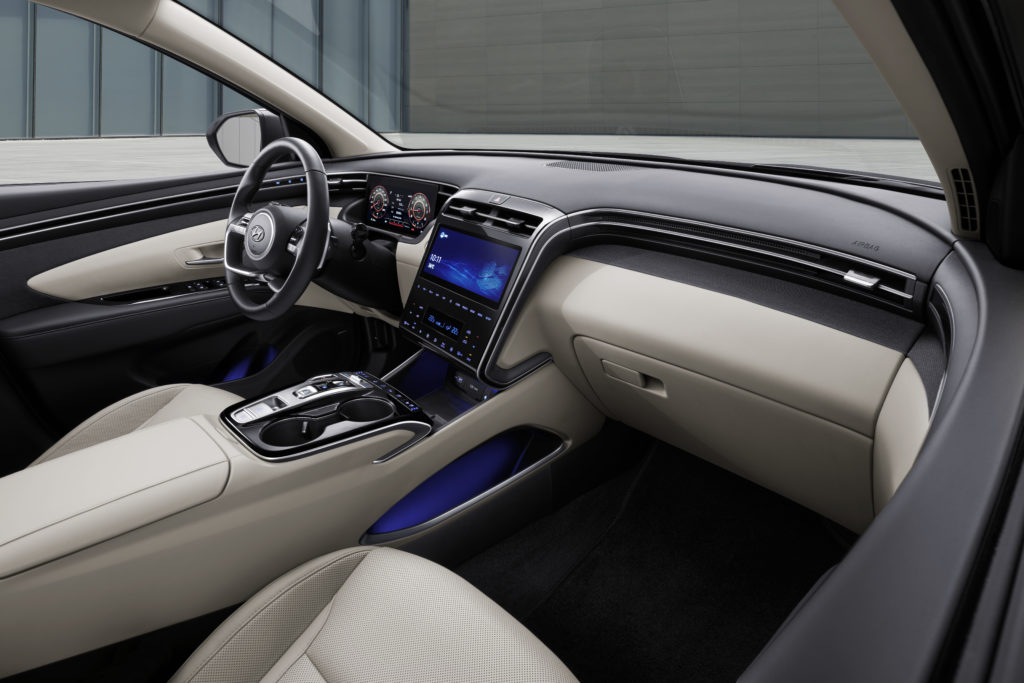
Under the center console, there’s additional storage, and above that are the controls for the heated and ventilated front seats and wireless phone charger. 64 user-selectable colors of ambient lighting emanate from the center console, above the wireless charging pad, and on the doors. Rear passengers can slide or recline the rear seat to their preferred position, and can select their own temperature for the rear climate control zone with rear heated seats to maximize comfort. Speaking of climate control, the Tucson also features multi-air slots in the dashboard, which serve to more gently air out the cabin without blowing air directly into the face of vehicle occupants when this is not desired.
Material quality also looks to be high for the segment, and the interior is available in multiple colors, including two-tone options and an available teal interior color choice. Interior dimensions are larger in every direction, including more legroom and more cargo capacity. The rearview mirror is a frameless style to finish things off nicely.
[ads id=”9″]
The Tucson now comes with a host of available convenience and safety driving features such as smart cruise control with Lane Following Assist, Lane Keep Assist, Highway Driving Assist, and active safety features that stop the car autonomously in various dangerous situations. A 360 degree camera doubles as a blind view monitoring camera that shows up as a display in the gauge cluster when using the turn signal. You can also remote park the car similar to the top trims of the Sonata.
The new Tucson is also now a more eco-friendly model, and will be available with a fully gas engine, a 48-volt mild hybrid powertrain, a fully hybrid model, and a plug-in hybrid. Lower powered Tucson receive a relaxed 2.5L naturally aspirate four-cylinder engine that gets 187 hp and 182 lb-ft torque. Higher powered specifications of the Tucson, including all the hybrid options above, receive a 1.6L turbocharged four cylinder, which has a maximum combined output of 227hp and 258lb-ft when assisted by the batteries in the hybrid systems. These powertrain options may vary by market.
Hyundai has also promised a N Line version of the new Hyundai Tucson coming soon, but has not said anything about a hotter full “N” version of the redesigned Tucson. Since Hyundai is already using the naturally aspirated 2.5L engine in the Tucson at launch, it seems safe to reason that an N Line variant could use the turbocharged 2.5L as in the Sonata N Line.
The Tucson also receives an optional HTRAC all wheel drive system with terrain modes. While this system doesn’t make the Tucson a true off-road vehicle, it does increase the capability of the compact crossover compared to its predecessor. Hyundai also provides electronically controlled suspension for the new Tucson that reduce body roll and pitch, and allow for a Sport mode that shows more noticeable difference between Normal and Sport modes than outgoing models.
Hyundai has also announced that the next generation Tucson will be available in two different wheelbases depending on what individual markets dictate.
Pricing is yet to be announced, but we do know that while the new Tucson will be available as a 2021 model in Korea, it will be coming to the US as a 2022 model year car sometime in the first half of 2021, and we hope that the US version retains all the goodies we’ve seen at its unveiling today.
[ads id=”8″]

